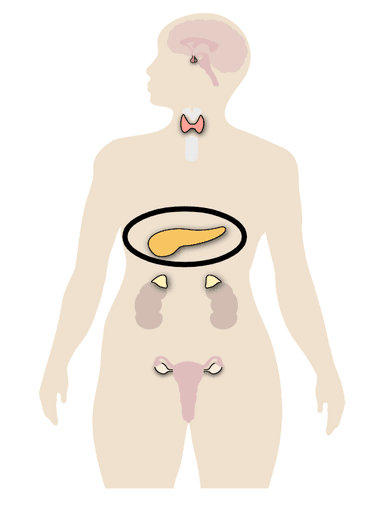Insulin, glucagon and the control of blood sugar level
I can describe the role of the hormones insulin and glucagon in controlling blood sugar level.
Insulin, glucagon and the control of blood sugar level
I can describe the role of the hormones insulin and glucagon in controlling blood sugar level.
Lesson details
Key learning points
- If conditions in the body change too much, this can be dangerous to our health.
- Glucose travels in the blood and is delivered to cells for respiration.
- The hormones insulin and glucagon help to keep human blood sugar level constant.
- The pancreas secretes insulin when blood sugar level is too high; the liver absorbs glucose and coverts it to glycogen.
- The pancreas secretes glucagon when blood sugar level is too low; the liver converts glycogen into glucose in the blood.
Common misconception
Not linking the idea that glucose concentration is important for cellular respiration, even during times of rest.
There are a selection of slides in LC1 that specifically link glucose and respiration and discuss the idea of respiration occurring during rest.
Keywords
Respiration - a chemical reaction in livings organisms that releases energy from glucose
Glucose - is a sugar that travels in the blood and is supplied to cells for respiration
Glycogen - is a stored form of glucose found in liver and muscle cells
Insulin - a hormone secreted by the pancreas when blood glucose is too high, lowering blood glucose levels
Glucagon - a hormone secreted by the pancreas when blood glucose is too low, increasing blood glucose levels
Equipment
None required.
Licence
This content is © Oak National Academy Limited (2024), licensed on Open Government Licence version 3.0 except where otherwise stated. See Oak's terms & conditions (Collection 2).
Video
Loading...
Starter quiz
6 Questions

increase in blood glucose concentration
decrease in blood glucose concentration
Exit quiz
6 Questions
blood glucose too high
blood glucose too low